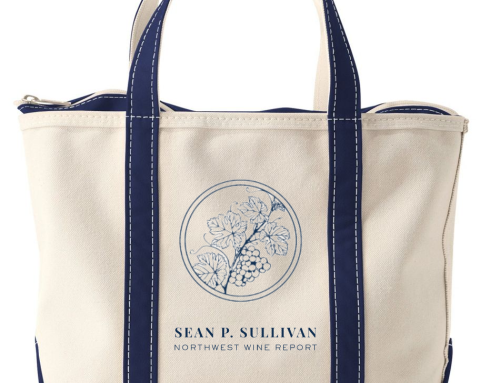
Paul Beveridge of Seattle’s Wilridge Winery started offering reusable bottles several months ago. Beveridge says that the inspiration was both to be as green as possible and to provide high quality wine at “recession buster” pricing.
The reusable bottles reduce environmental impact by eliminating cork (the bottles have reusable stoppers), capsules, paper labels, and the waste associated with recycling glass. “It takes five percent of the energy to clean and refill a bottle as it does to recycle a bottle,” Beveridge explains. Additionally, unlike boxed wine, it comes in a package consumers are already familiar with and that is fully reusable.
The wine, which Beveridge provides under a label called ‘Maison,’ comes in a 1.5 liter bottle. Nitrogen gas can be used to preserve the wine for extended periods. Beveridge currently offers a red blend, which is mostly Cabernet, a white blend, which is mostly Chardonnay, and a rotating varietal. The winery takes an initial deposit upon purchase. When the bottle is returned, the deposit is credited toward the purchase of the subsequent bottle.
In addition to eliminating the waste associated with glass bottles, the wines are kept in plastic crates, eliminating the cardboard boxes associated with bottled wine. Beveridge collects the crates of used bottles from businesses that sell the wine, brings them back to the winery, cleans them, and refills them.
‘Maison’ reusable wine bottles are currently offered at the Fremont Wine Warehouse (Beveridge credits proprietor Michael Cawdry with inspiring the idea), The Tasting Room in Pike Place Market, Bottlehouse in Madrona, and Leschi Market. Beveridge also provides the wine in a keg format to several area restaurants.
The response from consumers so far has been positive. “Consumers love them,” Beveridge says. “They bring the bottles back with pride and eco-consciousness. They also love the price: twenty dollars plus deposit for a 1.5 liter bottle of quality Washington wine.”
Fremont Wine Warehouse’s Michael Cawdry agrees that the reusable bottles have been a hit. “The ‘first adopters’ have been back two or three times in the forty-five days since I started the program and seem to like it,” Cawdry says. Like Beveridge, Cawdry takes a deposit on first purchase. If at any time the consumer decides not to continue with the program, he simply returns the deposit.
While refillable beer growlers have been used for quite some time, the concept has been more difficult to apply to wine due to federal statues. Beveridge explains, “Federal law prohibits filling a wine bottle anywhere other than at a bonded winery, but there is no similar regulation for beer.”
The idea was unique enough in Washington that Beveridge faced some hurdles getting it started. It took two years to determine that the program was compliant with existing laws and to get the reusable bottles approved.
In addition to reducing the environmental impact associated with glass bottles, reusable wine bottles also substantially reduce the cost associated with producing wine. This allows the wine to be offered at a lower price. Beveridge says “With the reusable ‘Maison’ bottles, we can pass the packaging savings onto our customers and help the environment at the same time.”







Very interesting idea! I hadn't heard of reusable bottles. I'm curious to know how much the deposit is?
Ashley M, the deposit at Wilridge is $8 and at Fremont Wine Warehouse is $9 as it includes a deposit for the stopper.
I've talked to Bruce Stephens at http://winebottlerenew.com.
The have a bottle reusing plant in Stockton, CA.
We were trying to figure out how to get funding for a plant in Washington. If anyone has any ideas please contact me ([email protected])
let's try to be environmentally sound.
Another interesting article, Sean!
Great idea — I hope more vintners make reusable bottles available. I referred to your story on my blog/website: thewinecellarsclub.com. I've also written several reviews about Washington State wines (Mercer, Bergevin Lane, Tamarack, L'Ecole 21), and recommended them in my retail store in Ohio. Not to be satisfied with just writing, I hosted a wine dinner with Mercer wines, and had Dave Forsyth in attendance. Love the wines and wish the Washington wine industry lots of success. Cheers!
FYI, DavenLore is also doing this with their "Recovery Red." It is sold at the farmers market in Prosser, and I think somewhere else, there, too. In Yakima it is sold at Stems.
We started using reusable bottles (stainless not glass) 3yrs ago and it has been well received. http://www.thenpa.tv
Where can I do this in Texas, specifically near/around Austin?